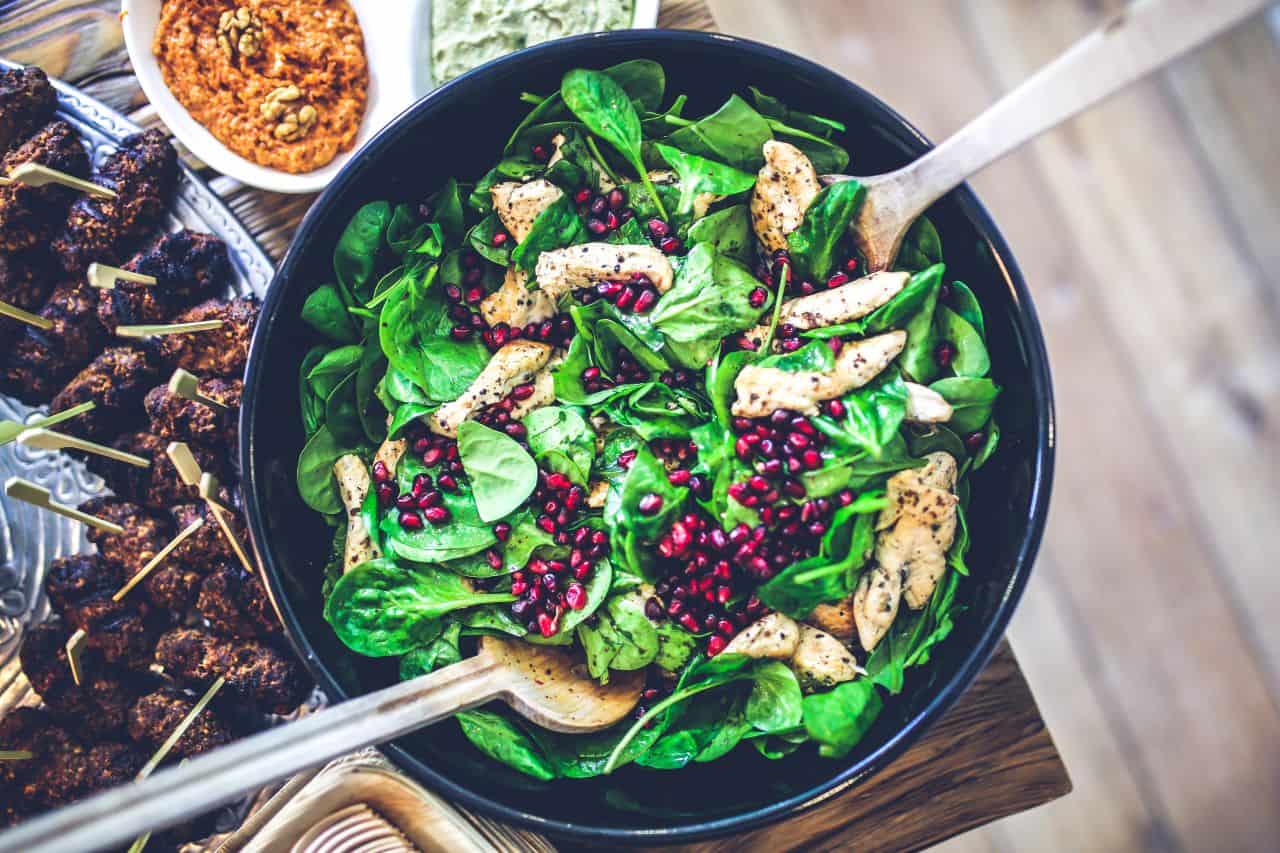When you were a teenager, you probably easily subsisted on pizza, fries, burgers, and sodas. Your metabolism was faster and you were probably more active, so your body could burn all those calories with little problem. Now that you’re older, pizza and burgers taste delicious, but you likely work twice as hard to keep them from giving you a permanent “food baby.” Eating healthy may not sound like fun, but it is essential to prolonging your life.
Prep Your Meals Each Week
Ask any health or fitness guru the number one thing they do to stay healthy and almost every one of them will say they prep their meals for the week. Choose one day per week and do the same. For breakfast, pre-slice fruits and keep boiled eggs on hand, or if you’re more of the smoothie type, you can make them a day or two at a time and store them in the freezer—just be sure you save room in the container for expansion when frozen.
For lunch and dinner, stick to lean meats, fruits and vegetables, and healthy grains. Layer your favorite salad ingredients in a jar, keeping “wet” vegetables separate from your leafy greens, and bring your dressing with you on the side. You can even make your own grownup lunchables with whole grain crackers, low-sodium lunch meat, and your favorite cheese.
If you don’t feel like cooking after work every night, cook once per week, freeze it, and then microwave your meal each night. If you don’t mind the same tastes every night, cook a giant pan of chicken and use it with brown rice or vegetables throughout the week. If you need variety, use foil to separate your pan into two or three sections first. You can season your chicken in multiple seasonings and cook them all at once to save time.
Stop Eating So Much Salt
Salt is an easy, tasty way to season pretty much everything, but it’s also very unhealthy when eaten in large amounts. Too much salt causes your blood pressure to rise, which affects not only your heart, but also your kidneys, brain, and the rest of your body. It isn’t enough to stop sprinkling it on your food, either. Many processed foods have lots of hidden sodium, so avoid them when at all possible. If you must buy processed foods, check the nutrition label and find the one with the least sodium.
Watch Your Cholesterol
Your body needs cholesterol to survive, but it already makes its own “good” cholesterol, known as high-density lipoprotein. When you eat too many saturated fats, which are found in items like cheese, butter, eggs and lard, you cause your body to have an overabundance of cholesterol, which can clog your arteries and lead to heart disease or a heart attack. Find substitutions without saturated fat such as avocados and olive oil if you suspect you’re eating too much cholesterol.
Get Enough Protein
Protein is essential if you want to have enough energy to make it through the day. Meat is a good source of protein, but too much red meat can cause health problems. Eat plenty of chicken and fish for protein. Nuts, quinoa, buckwheat, rice, beans, and hummus are all good sources of protein for vegetarians.
Drink More Water
Put down the energy drinks and step away from the soda. The caffeine and other “nutrients” in them may give you a temporary energy boost, but soon enough, you’ll come crashing down and want to take a nap right at your desk. These types of drinks can also cause you to have kidney problems when you drink them in excess. Grab a refillable water bottle and use it instead. Aim to drink about half your body weight in ounces, but never less than 64 ounces. If you must have flavor, get a water bottle that includes a fruit infuser.
Skip the Sweets
Cookies, cakes, and other sweet treats taste great, but they can also wreak havoc on your body, especially if you eat them often. The sugar and other carbohydrates cause you to gain weight, zap you of your energy, and can even cause tooth decay. When you need a sugar fix, use fruit, low-fat yogurt, or gelatin to curb your craving. If you must have cookies, keep Hampton Creek cookie dough on hand. The organic, plant-based product is still delicious, but much healthier than traditional cookie dough.
Of course, it’s okay to indulge from time to time, but too much of a tasty thing could leave you with health problems. Eating healthy ensures you live a long and happy life. Before making any major changes to your diet, be sure to talk to your doctor.


Contrary to the claims here, the longstanding body of science deems sugar-sweetened beverages safe. These products do not uniquely cause adverse kidney health, or other issues for that matter. Moreover, FDA-approved energy drinks have been safely consumed around the world for decades, and most mainstream varieties actually have significantly less caffeine than a comparable size coffeehouse coffee. In other words, these beverages, which are available in a range of sizes and calorie counts, can be a part of a sensible dietary balance. When it comes to leading a healthier life, all calories count and activity matters.